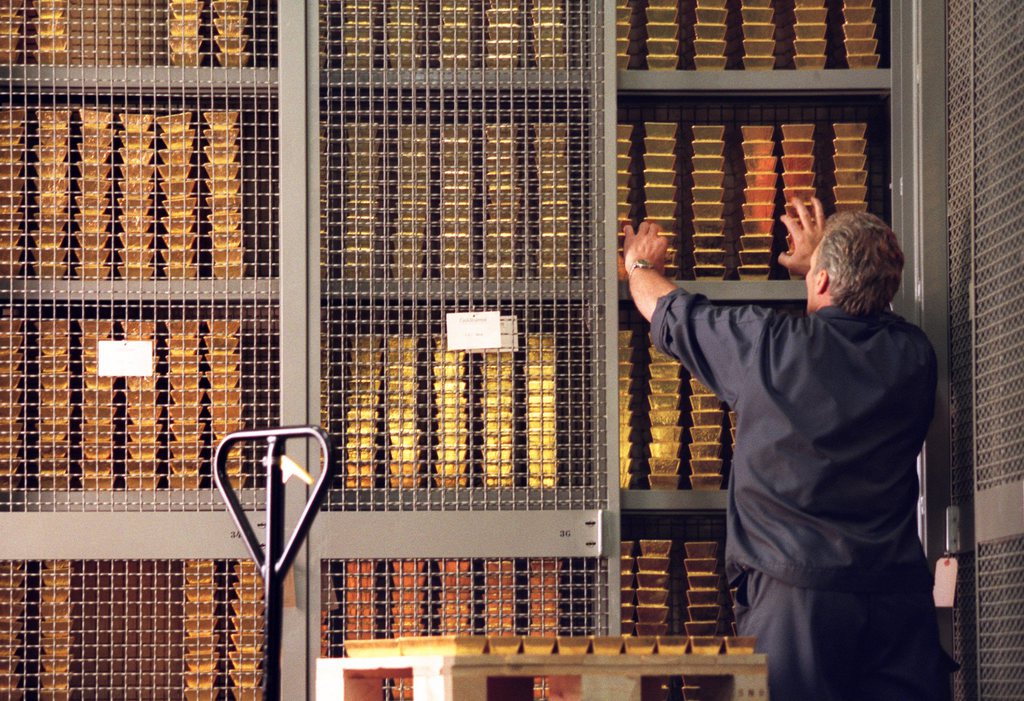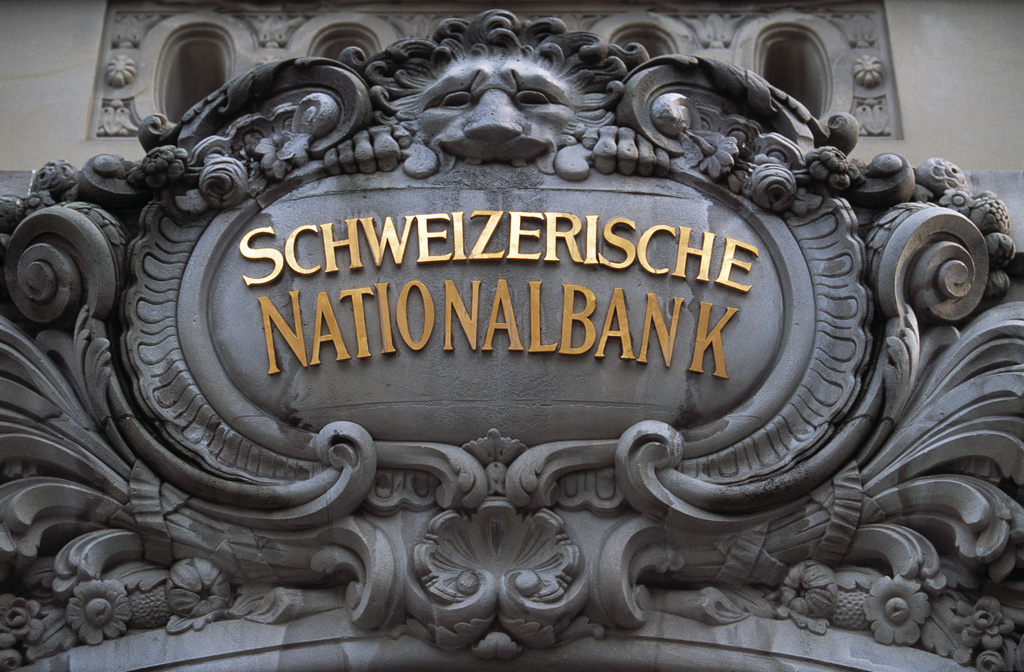Swiss to vote on central bank gold reserves

A rightwing group has submitted more than 106,000 signatures to the federal authorities, seeking a vote on stopping the sale of gold reserves held by the Swiss National Bank (SNB). It also wants gold bars stored in the United States to be returned.
The group, led by members of the Swiss People’s Party, the far-right Swiss Democrats and the Lega dei Ticinesi movement, is confident a nationwide vote will be called on the issue once the signatures are verified. A date still has to be set by the government.
The collection of the necessary 100,000 signatures over 18 months was hard going but a last-minute effort ensured they reached the goal in time, activists said on Wednesday.
People’s Party parliamentarian Luzi Stamm criticised the sale of gold reserves which started 13 years ago following a decision to abandon the gold standard.

More
Only the best will do
“Gold reserves guarantee the stability of the Swiss franc. They ensure that that private savings, salaries, pension keep their value,” Stamm said.
He warned gold must not be the object of speculation for the SNB or for politicians.
The initiative also seeks to enshrine in the constitution a clause obliging the central bank to keep a minimum of 20 per cent of its assets in gold, twice the current level. Promoters say higher gold reserves will boost the SNB’s credibility.
In addition, they want to force the government to disclose where the gold reserves are stored.
An important part of the reserves are kept in the US, according to People’s Party parliamentarian Lukas Reimann. He doubts whether the heavily indebted country can be trusted with the Swiss gold.
“It is only in safe hands if it is kept in Switzerland,” he told journalists.
Keeping prices stable
The SNB, which has to guarantee price stability in Switzerland, currently holds about 1,040 tons of gold reserves after gradually selling off at least 1,550 tons.
The rightwing campaigners said the bank made a meager surplus off the gold it sold, which went for a “pathetic price” of CHF16,000 ($16,900) per kilogramme on average.
By 2005, the proceeds of CHF21 billion had been distributed among the 26 cantons and the national government.
A previous proposal by the People’s Party to spend all the proceeds on the state’s old age pension system was rejected at the ballot box in 2002. A government plan to use part of it to fund humanitarian projects was also thrown out.

In compliance with the JTI standards
More: SWI swissinfo.ch certified by the Journalism Trust Initiative












You can find an overview of ongoing debates with our journalists here . Please join us!
If you want to start a conversation about a topic raised in this article or want to report factual errors, email us at english@swissinfo.ch.